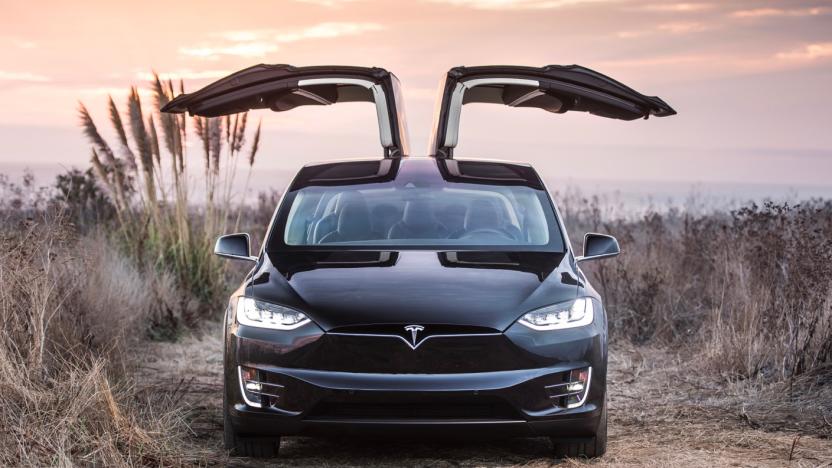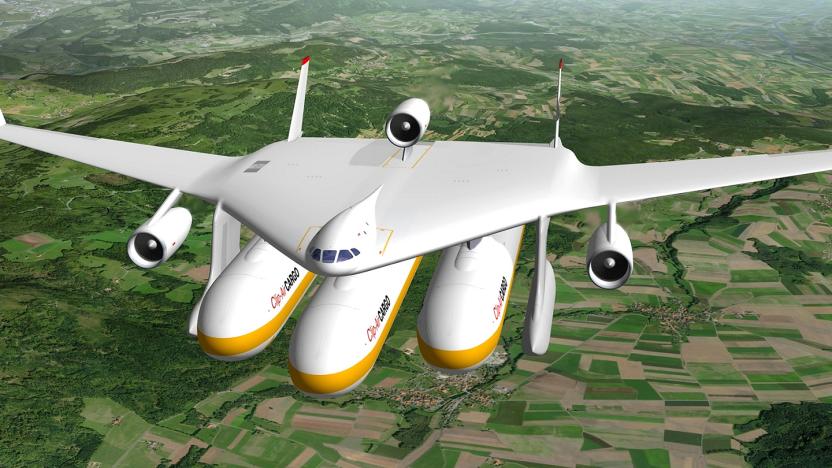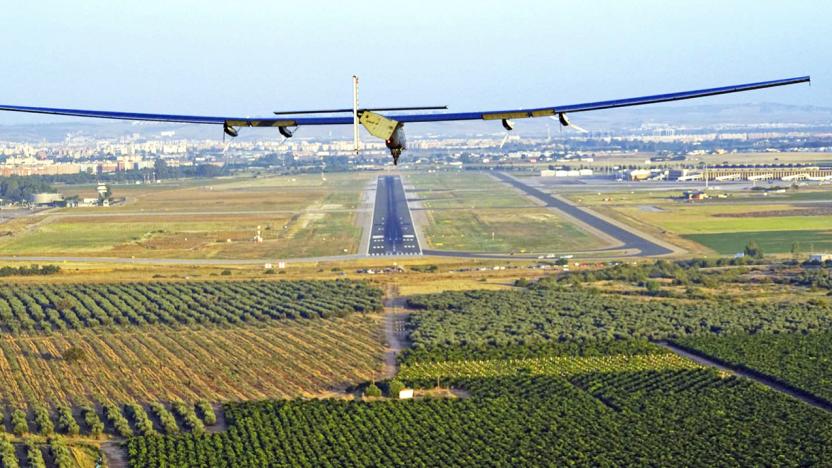inhabitat
Latest

Self-driving taxis and buses, and more in the week that was
The age of the self-driving car is finally here: Uber just announced plans to launch its first fleet of autonomous taxis this month, and self-driving buses are now hitting the streets of Helsinki. Airbus is shooting even higher with plans to build an autonomous flying taxi by the year 2017. Meanwhile, Nissan debuted a solid-oxide fuel-cell vehicle, which runs on ethanol and water instead of hydrogen. And Bosch rolled out a world's most compact folding electric bike, which packs down small enough to fit easily in a car trunk.

Six futuristic data storage technologies
By Cat DiStasio Digital technology is taking over the world, and scientists are hard at work finding better ways to store data -- lots of it and for long periods of time. Scientists are exploring new materials for data storage as well as new methods for printing data on their chosen medium. While some companies are storing data on the ocean floor, other imagineers look upward, dreaming of giant storage skyscrapers. With so many different innovations happening in such a short period of time, the race is on to unlock the keys to near-limitless data storage potential.

Karma's stunning electric supercar, and more in the week that was
After years of anticipation, Karma Automotive has finally unveiled the Revero, a plug-in electric supercar powered by roof-mounted solar panels. In other transportation news, BMW launched an electrified version of its flagship sedan, and a new report shows that the UK will have more EV chargers than gas stations by the year 2020. Work continues on the Hyperloop: One company announced plans this week to build the world's first underwater supersonic transport tubes. And Republic Bike's kids cargo bike might just be the coolest ride for pint-sized commuters.

Six designs that bust e-waste
By Cat DiStasio Many modern gadgets seem like they were designed to be disposable, forcing consumers to buy a new model instead of repairing their old one. This leads to an enormous amount of waste, and it's difficult to find places that recycle the tech we no longer need. Fortunately, a new wave of product design is surging: devices that are made from sustainable materials and can be easily repaired, often by the end user. These new designs range from smartphones with swappable modules to circuit boards that dissolve in hot water and automated kiosks that dispense cash in exchange for electronics. With the new trend on the rise, we can look forward to a world where fewer gadgets are destined for landfills.

A bus suspended over the ground, and more in the week that was
So far Tesla has launched a sexy sportscar, a luxe sedan, a powerful SUV, and an affordable electric car. What's next? Think bigger. According to Elon Musk, the company is set to unveil an electric Minibus next year, and it will drive itself. Speaking of buses, China just unveiled the craziest one we've ever seen: It's suspended above the ground, and is tall enough to fly right over traffic jams. A team of students created the world's most efficient electric car, which gets an outrageous 26,135 MPGe. Gogoro launched a new electric scooter sharing service in Berlin, and the world's first Hyperloop factory opened for business.

Six Tesla inventions that aren't electric cars
By Cat DiStasio Tesla is well known for its electric cars, but you might be surprised to learn about all the other stuff the company makes. At some point in time, each of the amazing things Tesla is doing now was simply another one of CEO Elon Musk's crazy ideas. Now the company is working on batteries that can power your home, the world's largest building and a global network of thousands of zero-cost electric car chargers. Read on to learn about six incredible Tesla projects -- aside from electric vehicles, that is.

Nissan's gold Olympics-edition EV, and more in the week that was
Tesla's Gigafactory is set to double the world's battery production, and this week it opened its doors for the first time. Tesla is also working on an electric truck, but Mercedes-Benz beat them to punch this week by launching the world's first all-electric big rig. In other transportation news, a sun-powered airplane completed an epic trip around the world -- and we highlighted eight milestones from its record-shattering flight. Nissan announced that it will give golden Leaf EVs to medal-winning Olympic athletes. And Norway unveiled plans to build the world's first floating underwater traffic tunnels, which will be suspended from pontoons.

Tesla's plan for world domination, and more in the week that was
Tesla is known for producing some of the world's best electric cars, but founder Elon Musk has even bigger plans for the company: world domination. Musk's new masterplan will grow the company to produce trucks and buses while using battery technology and solar infrastructure to transition the world away from fossil fuels. Meanwhile, the world's first "Tesla Town" is coming to Australia, and every home in it will feature solar panels and a powerwall. Driverless cars are almost here: This week Mercedes-Benz unveiled the fully autonomous bus of the future, while a GM exec confirmed plans to launch a self-driving Chevy Bolt EV with Lyft. And we spotted a crazy truck that's able to lay its own road across treacherous terrain in just six minutes.

Six vehicles powered by coffee, saltwater, sewage and other crazy fuels
By Cat DiStasio When it comes to advances in automotive technology, the search for alternative fuels is pretty exciting. Of course, you've heard about biodiesel engines converted to run on used vegetable oil that sputter out little more than water and the faint smell of French fries. However, there's a slew of vehicles out there that run on all sorts of other fuels too. There's an electric car powered by caffeine, as well as a hot rod that runs on air. Other curious fuel sources include plain old saltwater, crude made from algae, and (inevitably) there are even a number of vehicles designed to run on biogas generated from livestock waste (or, in layman's terms, cars that run on poop). Although some may be smellier than others, these inventive energy sources offer an intriguing alternative to conventional fossil fuels.

Inhabitat's Week in Green: A modular airplane, and more!
Is the age of the solar-powered car upon us? Hanergy thinks so. The Chinese company just debuted four new vehicles that source all of their energy from the sun. Meanwhile, Clip-Air announced plans to test a crazy modular airplane that carries passengers and cargo in detachable pods. Eleven electric cars set off on a 15,534-mile race across 20 countries and three continents. And cycling infrastructure made huge strides as Paris launched its first bicycle superhighway and the US made progress on a colossal bike path connecting the entire East Coast.

Six technological breakthroughs inspired by nature
By Cat DiStasio Biomimicry is an incredible field that seeks to unlock nature's deepest, darkest secrets and then use them to solve human problems. Many of the scientific breakthroughs in biomimicry have far-reaching applications ranging from new medical technologies, to methods of space exploration, advancements in renewable energy and better, cleaner and stronger building materials. The approach investigates nature's designs and seeks to replicate its processes to improve people's lives in the most efficient way possible. Inspiration can come from the most unlikely places, including long-extinct dinosaurs, sticky-footed geckos, deep sea creatures and even the structure of the tiniest green leaf. Read on to learn just a few examples of how scientists are mimicking the amazing abilities of plants and animals.

Inhabitat's Week in Green: Solar roadways, and more!
Photovoltaic roads sound almost like science fiction, but they're becoming reality in the US. This week Missouri announced plans to pave a section of the historic Route 66 with energy-generating Solar Roadways tiles. In other futuristic transportation news, Russia wants to build a 44-mile-long hyperloop track that stretches along the coast to China. Driverless cars are expected to hit prime time within the next five years, and we explored whether the convenience they offer will fuel suburban sprawl. Volkswagen promised to pay a whopping $14.7 billion to owners of cars affected by the emissions cheating scandal. And if you hate parallel parking, check out these incredible omnidirectional wheels that allow any car to drive sideways.

Six technologies changing the future of food
By Cat DiStasio Food production, processing and transportation account for a tremendous amount of greenhouse gas emissions, and enormous amounts of food are wasted each year in some parts of the world while other regions suffer from shortages. Fortunately, agricultural engineers and scientists are working hard to increase food production, create cleaner agricultural processes and develop greener packaging. With technological advancements, it may be possible to sharply reduce carbon emissions from the agriculture and food industries while simultaneously addressing food supply issues.

Inhabitat's Week in Green: Solar Impulse's record flight and more!
This week the Solar Impulse made history by becoming the first sun-powered airplane to cross the Atlantic Ocean. Meanwhile, a team of Swiss students built an all-electric race car that smashed an acceleration record by going from 0-60 mph in 1.5 seconds flat. Sweden rolled out one of the world's first electric highways, while two ex-Google employees are developing self-driving big rigs that slash emissions. And we showcased the Super 73 -- a bike/motorcycle hybrid that'll add some serious kick to your morning commute.

Six gadgets made from LEGO bricks
By Cat DiStasio When kids play with LEGO bricks, their creations are limited only by their imaginations. A few colorful blocks can become a spacecraft, a bulldozer or a skyscraper with just a few moves. Although the LEGO builds from you childhood may not do much on their own, those colorful bricks lend themselves to amazing works of ingenuity when combined with other simple items. To showcase the vast potential of these cherished toys, we've rounded up a series of awesome gadgets made from LEGOs. Read on to learn about a working LEGO printer built by a teenager, a prosthetic arm that makes kids the star of any crowd and even a working LEGO camera that shows how it's possible to create almost anything if you want it badly enough.

Inhabitat's Week in Green: The world's skinniest tower, and more!
Local Motors just unveiled the bus of the future, and it's fully autonomous, made by a 3D printer and controlled by IBM's flagship artificial intelligence system. In other transportation news, a German official declared that all new cars registered in the nation will need to be zero-emission by the year 2030. Tesla announced plans to sell its electric vehicles in a Nordstrom store in Los Angeles. And a solar-powered boat embarked on a historic journey across the Atlantic Ocean.

Six gadgets for a green camping trip
By Cat DiStasio This week marks the start of summer, and campers across the nation are getting ready to explore the great outdoors. Fortunately, it's easier than ever to go off-grid while keeping a light footprint. That means finding tents that don't mar the land and cooking methods that don't generate needless waste. It's also easier than ever to keep electronic gadgets charged throughout your trip. And, of course, nobody wants to fumble with flashlight batteries in the dark, so rechargeable and solar-powered lanterns are a big win at any camp site. Whatever goals you set for your next trip, there's a gadget out there to help you achieve it.

Inhabitat's Week in Green: An impressive mobile home, and more!
Is the age of the flying car upon us? This week a new report revealed that Google co-founder Larry Page has secretly invested over $100 million in two aerial vehicle startups. Meanwhile, four major political parties in Norway have proposed a ban on all gas-powered cars by the year 2025. A team of Swedish students unveiled one of the world's most energy-efficient rail-bound vehicles. A young filmmaker transformed a boring Chevy van into an incredible solar-powered mobile home. And the Coboat is a sun and wind-powered catamaran for co-working freelance nomads.

Six incredible buildings made from shipping containers
By Cat DiStasio Cargotecture is a growing trend in modern architecture that has more to do with repurposing than it does with starting from scratch -- and yet the results are no less spectacular than traditional construction projects. Recycled shipping containers can be used alone for a tiny, efficient homes, or linked together for more spacious structures. Around the world, architects and designers are reinventing the cost-efficient "bones" of steel shipping containers into amazing reflective art installations, self-contained produce farms and even pop-up hotel rooms that can be moved for a change of scenery. With their low cost and resilient nature, these container buildings are a creative response to a variety of architecture challenges, and each one is cooler than the next.

Inhabitat's Week in Green: The first freeform 3D-printed house
After 20 years of construction, Switzerland just completed the world's longest and deepest rail tunnel. The 35-mile Gotthard Base Tunnel runs 1.5 miles under the mountains connecting northern and southern Europe. In other transportation news, Paris just banned all cars made before 1997 in a bid to reduce air pollution. Tesla's battery Gigafactory is set to host its grand opening on July 29th, while a new report claims that Volkswagen is spending $15.5 billion to build a gigantic battery factory of its own. Consumer Reports ranked the Toyota Prius as the car with the best gas mileage it has ever tested, and Ford announced that the Fusion Energi can travel further than any other plug-in hybrid on the market.
